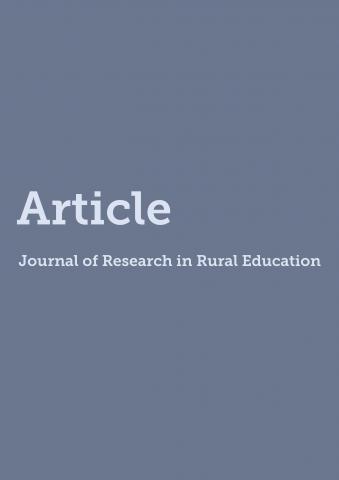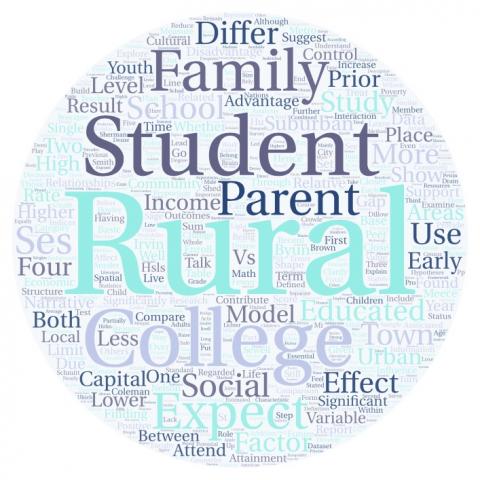Search Articles

book

book

book

book

book

book

book
Using data from the 2009 High School Longitudinal Study, this article examines how family factors contribute to the rural/non-rural differences in college expectations in the early 2010s. Prior studies have found that rural students have disadvantages in family economic and cultural capital and advantages in social capital when pursuing higher education, formulating the rural disadvantage narrative and the rural advantage narrative. However, it is unclear how these rural disadvantages and advantages in family factors joined to influence student college expectations in the early 2010s. Using logistic regression models and interaction terms, this article contributes to prior studies by showing that in general, in the early 2010s, rural students were as likely as non-rural students to expect four-year college education. They were, however, less likely than suburban students to have college expectations and slightly more likely than town students to expect college, suggesting that the rural/non-rural differences in college expectations are more complex than previously thought. Rural students had similar family income levels as non-rural students, partially challenging the rural disadvantage narrative. Although rural students had advantages in social capital, the rural advantage narrative was partially challenged because the low parental educational expectations limited rural students’ college expectations.
